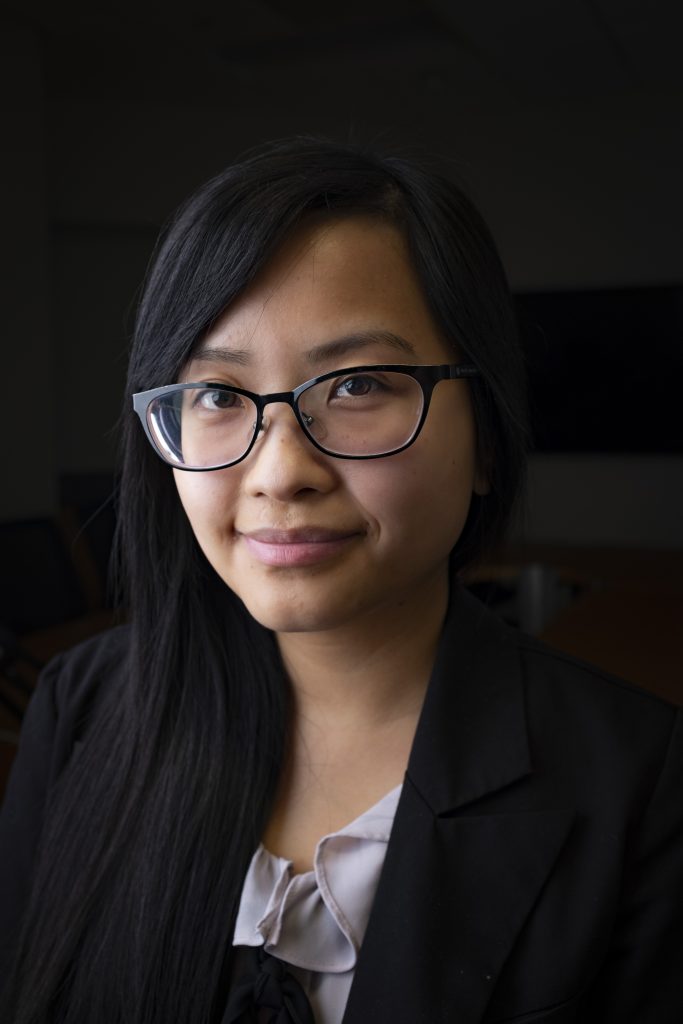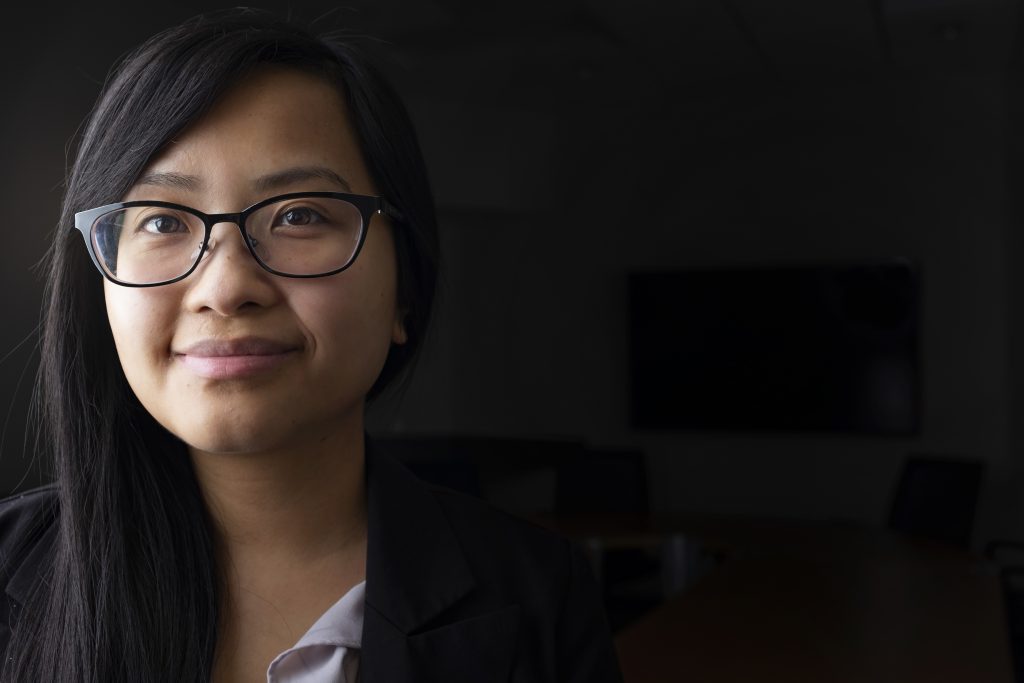Kalia Xiong is currently serving as the Capitol Pathways Program Manager at the Citizens League. Born the daughter of refugees from Thailand, she studied political science at Macalester College and was herself an intern in the Capitol Pathways program.
 Stepping inside the Minnesota State Capitol for the first time, Kalia Xiong felt the weight of a place not built for her. As a new intern accompanied by her advisor, she had her reservations and fears. To ask where the restroom was, for instance, would reveal to everyone her lack of knowledge about the place. She worried this would taint her advisor’s perception of her as an intern. At the beginning of this important experience, she couldn’t mess up.
Stepping inside the Minnesota State Capitol for the first time, Kalia Xiong felt the weight of a place not built for her. As a new intern accompanied by her advisor, she had her reservations and fears. To ask where the restroom was, for instance, would reveal to everyone her lack of knowledge about the place. She worried this would taint her advisor’s perception of her as an intern. At the beginning of this important experience, she couldn’t mess up.
Her internship was through Capitol Pathways, a new program at the time. Kalia now directs the program as a staff member at The Citizens League. Capitol Pathways is designed to provide college students of color the opportunity to intern with a wide variety of government organizations and experience first-hand the policy-making process.
In a world where many of our public decisions are made by those who don’t truly reflect their communities, the number of people who feel like they have no voice is numerous.
Kalia speaks often about how policy happens everywhere. It impacts everyone. Yet it’s rare that it includes everyone. Her Capitol Pathways experience as a student highlighted to her the power of belonging.
The necessity of belonging. It’s easy to forget about.
Audio: Sharing Struggles
Her parents came to the U.S. from Thailand, refugees of war. Low incomes have a way of shifting priorities and when it comes to happiness, the ability to be comfortable, the ability to afford comfort, easily tops the list. Reflecting on her parents moving to the U.S., Kalia says, “If they were able to do that just so that I can be here and live a better life than they did, nothing should stop me from working as hard as I can to make sure that they feel reassured as parents… My parents just want that reassurance that their children will be ok.”
Because her parents’ happiness was dependent on her ability to be comfortable, she spent most of her college career aiming to be a lawyer.
Then she had a professor who pushed her to think more deeply about her path. It began the process of learning to think for herself and step outside of seeing through her parents’ lenses, yet simultaneously a continuation of a lesson she had been learning for many years: there’s no one path to getting what you want. Then it was her senior year of college, the year of her Capitol Pathways internship.
It was a type of work she didn’t know even existed. The chance to create a space for people like her to belong, fit perfectly with her own personal experience of not belonging. It was community work that she loved.
She says she’s in the business of building relationships. The part of her Capitol Pathways experience that brought her to life was the fact that she found a network of peers, just like her, who were doing the hard work of finding their own voices.
Talking about the monthly gatherings of Capitol Pathways students, a fulfilling smile shone from her face. Creating the space for these young people to share their experiences amongst each other is an act of facilitating the realization of common ground. It’s no surprise that many of these experiences revolve around the theme of not belonging, particularly when it comes to deciding the way our community is organized.
Kalia aims to address this very issue. She tells a story about bringing a cohort of students to the Capitol for a tour. “We were walking past some desks. I looked at one and the name tag was Iman.” Iman was a Capitol Pathways alumna and she was now working at the Capitol as a legislative assistant. “I was able to say to students, ‘this is one of our Capitol Pathways students and if you ever need anything, you know you can depend on her… Iman is someone that you can go to.”
Being able to say and show to students that they belong, that they have a voice, that there are people just like them doing important work, and that these people are accessible, has immense power.
“We’re trying to build a new age of civic leaders of color who still believe in existing in that middle space. That there is value in disagreeing but still being able to have civil conversation with each other. To reach solutions that we all want.”
Audio: Touring The Capitol
But Kalia’s work, along with that of the Citizen’s League, goes beyond this. It’s about emphasizing the importance of working for change from the middle ground. “We’re trying to build a new age of civic leaders of color who still believe in existing in that middle space, that there is value in disagreeing but still being able to have civil conversation with each other, to reach solutions that we all want.”
Her work is fueled by the belief that in order to make effective change, one must first understand the system in which they work. “You need to be at the table to create change.” Often times the best changes are the most difficult ones to create because they require many differing views to be at the same table. To bring all these people together requires work from the middle. Furthermore, it requires building trust.
The message Capitol Pathways communicates to its students stands out as a point of light in our divided world: “We are teaching you that there is a space in the middle… Citizens League has been able to reassure students that they can operate in this middle ground and still be authentic to themselves,” Kalia says.
She continued on by saying, “I know that we need those people that want to tear down the system, to make sure that this work is moving. But then I also know that we need people that are ok with supporting those individuals in this middle ground so that we can be invited to certain spaces that they can’t be. We need to do this work together. Because policy is happening everywhere, there is space and there is room for everyone to do what it is that they can do well.”
Audio: Working From The Middle
It’s the same advice she spent many years learning: “There’s no one path to getting what you want.”
Her work is about involving everyone at the table; about give everyone a voice, a place at the table.
“It’s not just about providing access. It’s really about thinking very critically about how it is that you provide access.”
But it’s also about thinking how to make that possible systemically. “It’s not just about providing access. It’s really about thinking very critically about how it is that you provide access.”
